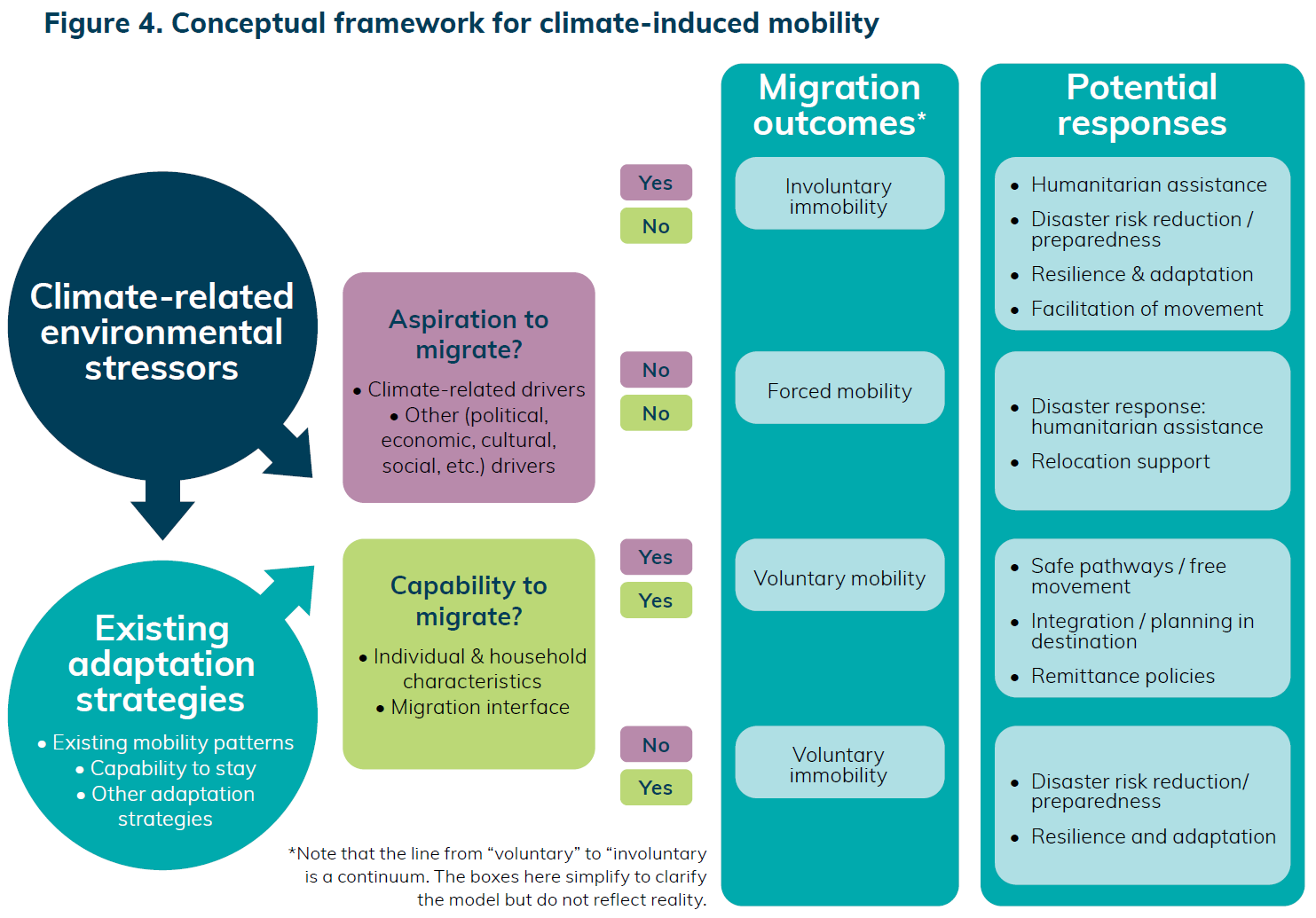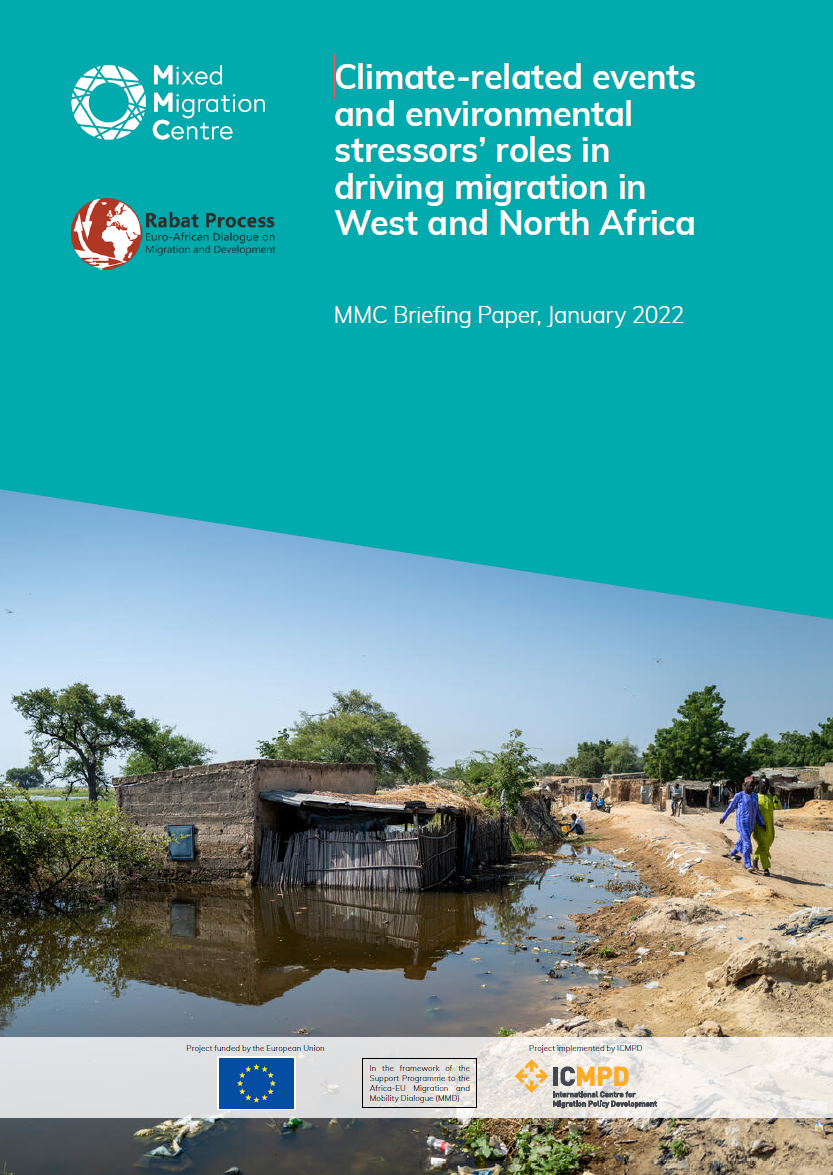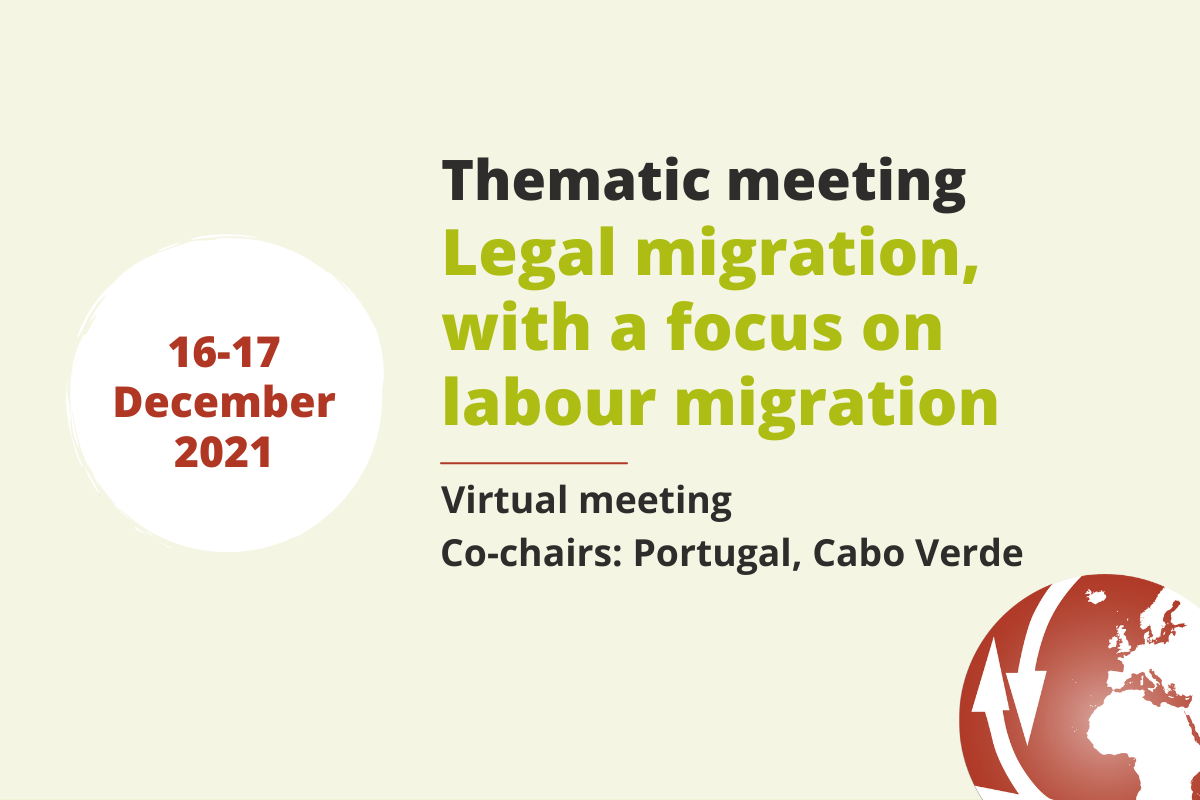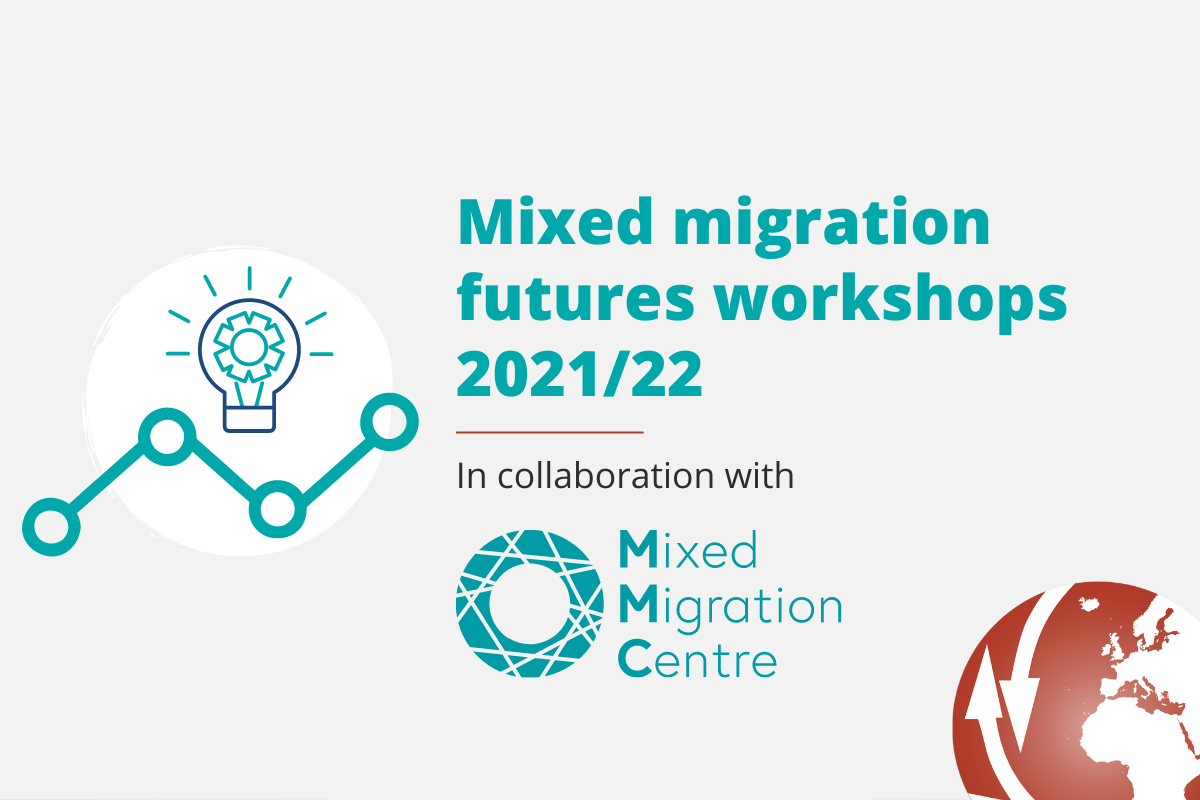Climate change and environmental stressors are already affecting mobility and displacement and are set to intensify in future. Yet, integrating issues of climate change and environmental drivers into migration policy-making and management has been a challenge in West and North Africa, but also globally. This briefing paper looks at the complex relationship between the effects of climate change, environmental drivers of mobility, and the actual decision to migrate and advocates for a nuanced understanding and approach to the issue.
It is the fourth and last in a series of briefing papers that were published by the Rabat Process Secretariat in collaboration with the Mixed Migration Centre (MMC) in 2021/22. The briefing paper proposes a new conceptual framework that covers the full spectrum of climate-induced mobility outcomes, enabling a more complete picture of how climate change and mobility link together. It also identifies four priority areas for future migration policy-making and planning in the context of climate change.
The analyses contained in this paper are based on a brief literature review and quantitative 4Mi data, MMC’s primary data collection system that collects comparable quantitative data on mixed migration among migrants and forcibly displaced people in West and North Africa. The data used for this paper was collected between February and September 2021 in six countries: Mali, Niger, Burkina Faso, Libya, Tunisia and Sudan.
- March 2022: “Climate-related events and environmental stressors’ roles in driving migration in West and North Africa”
- November 2021: “Urban mixed migration - Experiences of migrants moving to, through and from cities in West and North Africa”
- June 2021: “Migration drivers and decision-making of West and Central Africans on the move in West and North Africa”
- March 2021: “The impact of COVID-19 on refugees and migrants on the move in North and West Africa”
A new conceptual framework for climate-induced mobility
The literature review suggests that internal displacement and involuntary immobility, rather than cross-border movements, are the most likely migration outcomes resulting from the impact of climate change on environmental drivers. In addition, 4Mi data analysed in the briefing paper provides insights into how migrants and forcibly displaced people (who did cross international borders) perceive environmental factors in their decision-making. The data indicates that climate change often plays out as an underlying factor and multiplier, particularly in already fragile livelihoods and economies.
As the 4Mi data only covers cross-border mobility, the paper ends with a proposal for a conceptual framework that looks at the role of climate-related impacts in the context of mobility more broadly. This framework offers a way of understanding where mobility fits among other adaptation strategies, and covers the full spectrum of climate-induced mobility.

Future priority policy areas
The briefing paper also defines four broad areas of policy response linked with climate related events and stressors, including:
- Adaptation and resilience,
- Urban planning,
- Management and facilitation of (cross-border) circular movements,
- Management and facilitation of cross-border migration.
The paper advocates for a nuanced understanding and approach to the issue, since a ‘catastrophe’ of imminent mass migration due to climate change, as sometimes invoked in public discourse, is not necessarily supported by evidence. In fact, mobility can be a sign of positive coping or adaption or a negative measure of last resort. Policy and programmatic interventions should thus focus on avoiding forced immobility and forced mobility, while enabling both voluntary immobility and voluntary mobility as desirable outcomes of successful adaptation.






